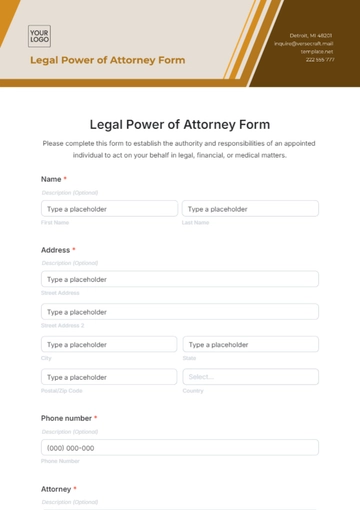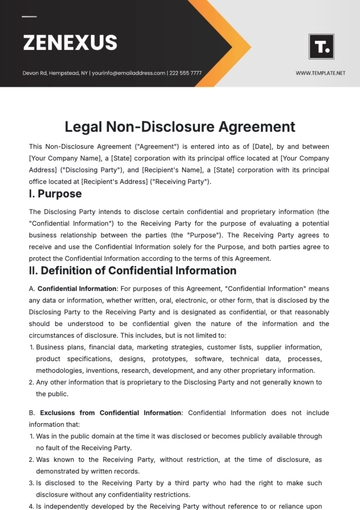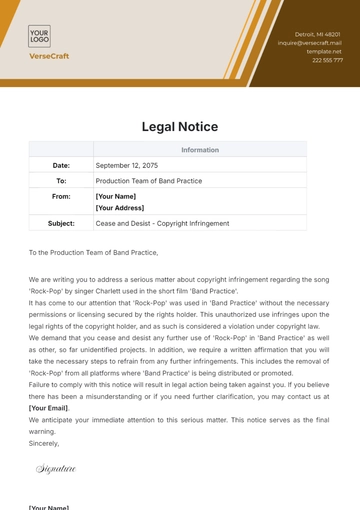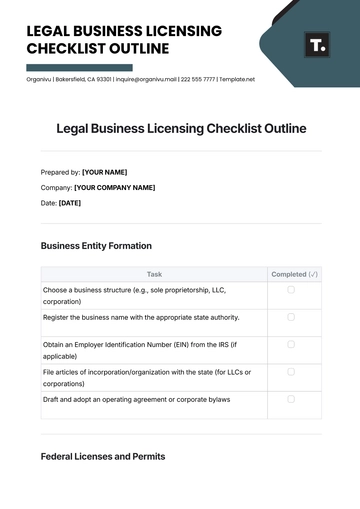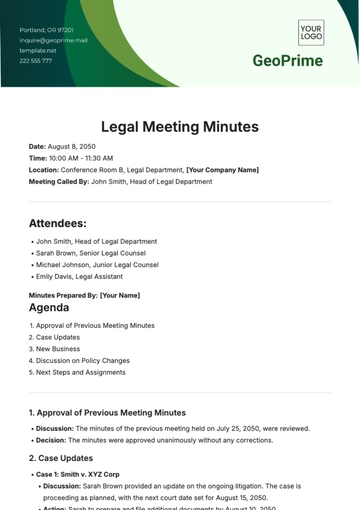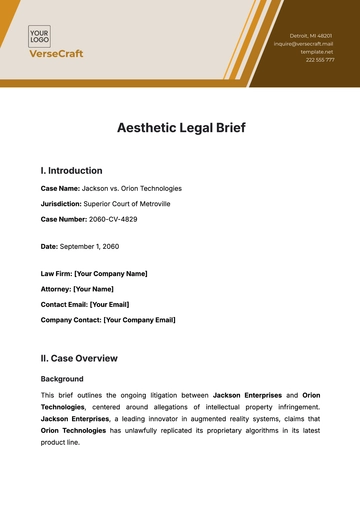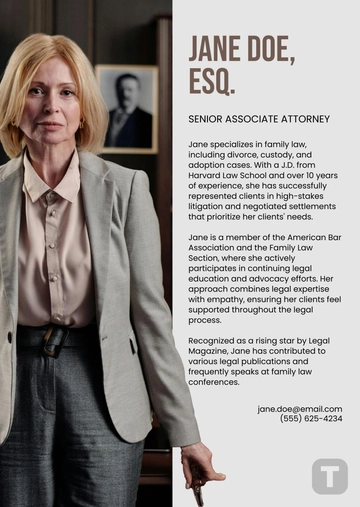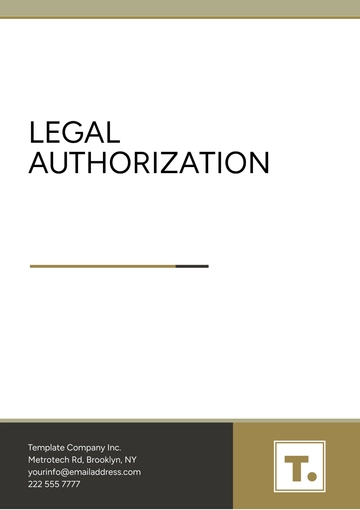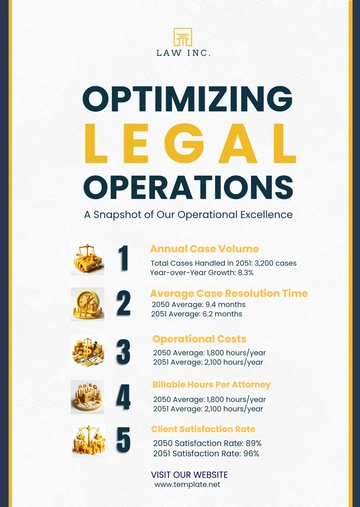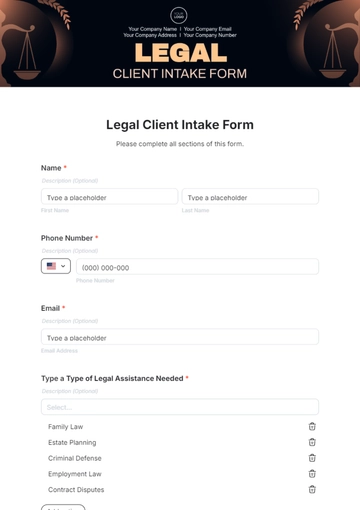Free Legal Memorandum
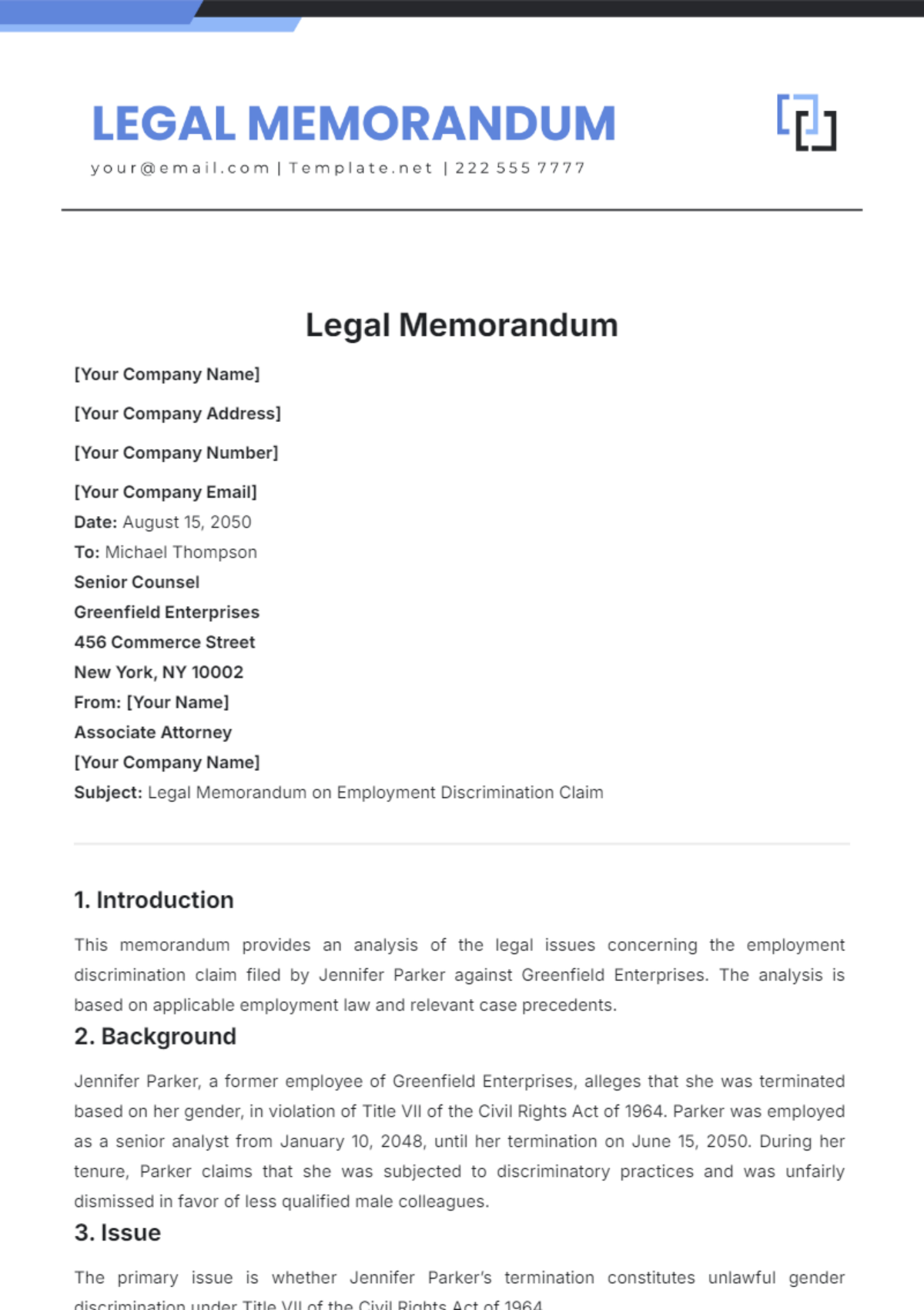
[Your Company Name]
[Your Company Address]
[Your Company Number]
[Your Company Email]
Date: August 15, 2050
To: Michael Thompson
Senior Counsel
Greenfield Enterprises
456 Commerce Street
New York, NY 10002
From: [Your Name]
Associate Attorney
[Your Company Name]
Subject: Legal Memorandum on Employment Discrimination Claim
1. Introduction
This memorandum provides an analysis of the legal issues concerning the employment discrimination claim filed by Jennifer Parker against Greenfield Enterprises. The analysis is based on applicable employment law and relevant case precedents.
2. Background
Jennifer Parker, a former employee of Greenfield Enterprises, alleges that she was terminated based on her gender, in violation of Title VII of the Civil Rights Act of 1964. Parker was employed as a senior analyst from January 10, 2048, until her termination on June 15, 2050. During her tenure, Parker claims that she was subjected to discriminatory practices and was unfairly dismissed in favor of less qualified male colleagues.
3. Issue
The primary issue is whether Jennifer Parker’s termination constitutes unlawful gender discrimination under Title VII of the Civil Rights Act of 1964.
4. Analysis
4.1. Applicable Law
The issue is governed by Title VII of the Civil Rights Act of 1964, which prohibits employers from discriminating against employees on the basis of sex. According to 42 U.S.C. § 2000e-2(a), it is unlawful for an employer to discharge any individual or otherwise discriminate against any individual with respect to their compensation, terms, conditions, or privileges of employment because of sex.
4.2. Case Law
In Price Waterhouse v. Hopkins, 490 U.S. 228 (1989), the Supreme Court held that an employer's decision based on gender stereotypes constitutes sex discrimination under Title VII. Similarly, in McDonnell Douglas Corp. v. Green, 411 U.S. 792 (1973), the Court established a burden-shifting framework for proving discrimination, which requires showing that the employee is a member of a protected class and that they were subjected to adverse employment action under circumstances giving rise to an inference of discrimination.
4.3. Application to the Facts
Applying the principles from the aforementioned cases to Jennifer Parker’s situation, there is a potential claim of discrimination. Parker, as a female employee, could argue that her termination, in favor of less qualified male colleagues, meets the criteria for discriminatory action under Title VII. The fact that her dismissal coincides with her reporting of discriminatory practices may further support an inference of retaliation.
5. Conclusion
Based on the analysis, it is likely that Jennifer Parker has a valid claim of gender discrimination under Title VII. The evidence suggests that her termination could be perceived as a retaliatory act stemming from her complaints about discriminatory practices.
6. Recommendations
It is recommended that Greenfield Enterprises conduct a thorough internal investigation into the claims raised by Jennifer Parker. Additionally, the company should consider settlement discussions to potentially resolve the matter before litigation escalates. Further, a review of current employment practices and training on anti-discrimination policies should be conducted to prevent future claims.
7. Attachments
Excerpt from Title VII of the Civil Rights Act of 1964
Price Waterhouse v. Hopkins Case Summary
McDonnell Douglas Corp. v. Green Case Summary
Jennifer Parker’s Employment Records
[Your Name]
Associate Attorney
[Your Company Name]
- 100% Customizable, free editor
- Access 1 Million+ Templates, photo’s & graphics
- Download or share as a template
- Click and replace photos, graphics, text, backgrounds
- Resize, crop, AI write & more
- Access advanced editor
Draft precise legal documents with the Legal Memorandum Template from Template.net. This editable and customizable template offers a professional format for outlining legal issues, analyses, and recommendations. Use our AI Editor Tool to tailor your memorandum, ensuring clear, thorough, and effective communication of legal insights and arguments. Get yours today!
